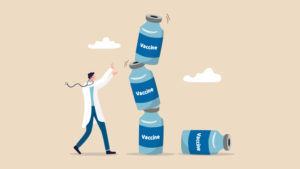This blog gives you info on the Impact of Covid on Asthma Patients and measures that need to be taken.
A chronic lung condition affecting the airways and causing inflammation is Asthma. This condition leads to spasms and narrowing of the air passageways, which causes wheezing, breathlessness, and coughing. On the off chance that you contract a respiratory virus, the infection generally sets your body’s immune response in motion. If you have Asthma, then it can lead to an overproduction of substances that only worsen inflammation.
Impact of Covid on Asthma Patients
As we battle with COVID-19, which is affecting the respiratory system of the human body, you are most likely to be concerned about how it will affect you if you already have Asthma. Firstly, know that you can reduce the risk of developing severe illness from COVID-19 by controlling your Asthma and maintaining consistent infection prevention habits.
Although COVID-19 and Asthma are both related to the respiratory system, they are slightly different as COVID-19 leads to an inflammatory process inside lung tissue instead of the usual bronchial inflammation in Asthma. Respiratory viral infections, including COVID-19, can trigger and worsen Asthma symptoms, and as per various experts, it can also cause pneumonia in people with moderate to severe Asthma. If you have Asthma, then you should be extra cautious and take all precautions you can to keep the condition at bay.
Is COVID-19 more dangerous for you if you are suffering from Asthma?
Impact of Covid on Asthma Patients; Asthma isn’t likely to be a significant risk factor for catching COVID-19, but if the Asthma isn’t controlled, then it might lead to more severe illness for you if you contract COVID-19. Experts say that if you have moderate to severe Asthma, then you are at a higher risk of getting seriously ill from COVID-19, and it is because the coronavirus affects your upper and lower respiratory tracts, like the nose, throat, and lungs.
You must start or continue to take your asthma medication as prescribed or as usual during the pandemic. One of the best methods you can take to protect yourself is to keep the Asthma symptoms under control.
Basic COVID-19 facts you need to know:
COVID-19 tends to spread from one person to another in no time through contact with infected respiratory droplets. One can pass on the virus even before symptoms develop, while individuals can stay asymptomatic but still pass on the virus. Some of the signs to look for:
- Muscle pain
- A sore throat
- A headache
- Chills
- New loss of taste or smell
- A fever
- Breathlessness
- A cough
No doubt, the majority of people recover from COVID-19 without needing special treatment, but as per research, it was concluded that at least 1 out of every six people who contract COVID-19 would become ill seriously and find it challenging to breathe normally.
If you have asthma, you should also look for some other symptoms, including:
- Nighttime or early morning coughing
- More frequent use of rescue inhaler
- An increase in wheezing or chest tightness
- Breathlessness
Extra care and precautions for people who have Asthma
If you have Asthma, then you must continue to take all asthma medications, such as rescue inhalers, steroid inhalers, steroid pills, and biologics, as per your doctor’s advice and on time as prescribed. You must also know how to handle the inhaler properly besides avoiding your Asthma triggers.
Some of the common Asthma triggers include:
- Exercise
- Mold
- Acid reflux
- Stress
- Strong fragrances
- Tobacco smoke
- Pets, dust mites, pollen
- Air pollution
- Weather extremes
General COVID-19 prevention recommendations
You must wash your hands frequently with soap and water and using an alcohol-based hand sanitizer if soap and water aren’t available. Here are the WHO recommended steps on how to wash your hands.

You must also avoid touching surfaces others have connected with and consider practicing social distancing from others, especially in a crowded area. Additionally, you should get vaccinated at the earliest.




